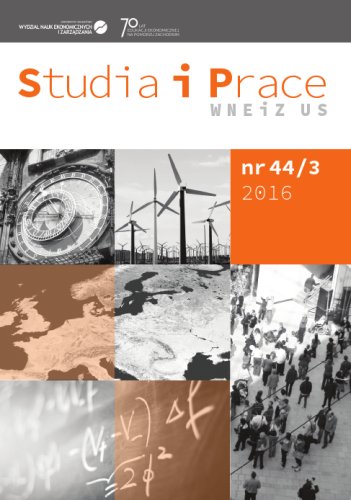AGGREGATE RELATIVE DEPRIVATION AND MACROECONOMIC IMBALANCES IN THE EURO AREA – A FIRST LOOK
AGGREGATE RELATIVE DEPRIVATION AND MACROECONOMIC IMBALANCES IN THE EURO AREA – A FIRST LOOK
Author(s): Julia WłodarczykSubject(s): Economy, Supranational / Global Economy, EU-Approach / EU-Accession / EU-Development, Socio-Economic Research
Published by: Wydawnictwo Naukowe Uniwersytetu Szczecińskiego
Keywords: aggregate relative deprivation; income comparisons; macroeconomic imbalances; inflation; unemployment;
Summary/Abstract: This paper puts the problem of macroeconomic imbalances in the euro area in an unconventional perspective, focusing on more intense interpersonal income comparisons between individuals from different euro area countries after introduction of a common currency. Costs and benefits of monetary integration (associated with more intense income comparisons) are expressed in terms of aggregate relative deprivation (ARD). It is demonstrated empirically that for 12 euro area countries greater cumulative costs of monetary integration expressed in ARD terms (“ARD losses”) in the euro area are positively correlated with greater cumulative increase in the general price level, in the unemployment rate and greater budgetary deficits. No statistically significant relationship was found for appreciation of the real effective exchange rate, nor current account deficits.
Journal: Studia i Prace WNEIZ US
- Issue Year: 2016
- Issue No: 44/3
- Page Range: 273-283
- Page Count: 11
- Language: English

